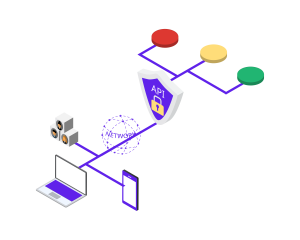Gutenberg Blocks: How Can Businesses Benefit from WordPress’s Editor Experience?
 Reading Time: 10 minutes
Reading Time: 10 minutesTable of Content:
It’s been almost a week since our Enterprise WordPress Agency for Development packed its bags and headed straight to Athens, Greece where this year’s WordCamp Europe took place. If you want to know how our experience there went, you can always catch up here. However, today’s post is situated around a much-anticipated topic that gains more and more popularity in the WordPress community – custom Gutenberg blocks!

If the article’s title rings a bell, you’re not mistaken – it’s precisely the subject our CEO and founder Ivan Popov chose to present at the conference. He was selected as a speaker for a second year in a row – after speaking about the Headless WordPress approach in Porto last year, this time he decided to shed some light on the CMS’s infamous editor Gutenberg and its multitude of scaling opportunities and benefits.
It was no surprise that the topic gained much attention – Matt Mullenweg himself expressed an opinion last year that Gutenberg is perhaps the future when it comes to editing experience and has the potential to grow bigger than WordPress itself! So it’s no wonder our founder chose exactly Gutenberg to be the star of his lightning talk on Track 1 in WCEU.
If you’ve, by any chance, missed his interesting presentation, have no fear – today we’ll be covering the very basics and will with great pleasure touch upon the subject of Gutenberg and its numerous advantages and benefits. And here’s the brilliant twist – this goes way beyond WordPress-driven websites. Yes, you’ve got that right – the editor’s opportunities and scalability have the potential to outgrow the WordPress ecosystem and, through precise tech engineering, become an integrative part of virtually any platform or application.
What Makes the WordPress Editing Process a Top-Notch Experience
WordPress Truly Stole People’s Hearts – And For Very Good Reasons
There’s a reason why WordPress is the world’s most famous CMS, powering over 40% of websites in general – it’s intuitive, incredibly easy to use even by non-tech individuals, it has unparalleled opportunities, it’s truly SEO-friendly and provides a whole another level of experience when it comes to content management, customization and performance.
However, in recent years, the WordPress ecosystem came up with yet another reason it skyrocketed and turned into everyone’s favorite – the editor Gutenberg presented never-seen-before opportunities and editing options that quickly turned the editing experience into a full-fledged working solution, offering unimaginable customization options.

In his speech, Ivan mentioned that back in the days when Vipe Studio was just launching, one of our agency’s strongest selling points was that editing your website with WordPress was virtually no different from editing just a plain text document. It was, and still is, that easy and effortless! In addition to this, the CMS’s ever-so SEO-friendly nature and constantly evolving accessibility features truly managed to put WordPress on the business landscape for good.
Builders Come to the Rescue – But Are They As Versatile As We All Wish Them to Be?
When we refer to WordPress editing experience, we absolutely must direct our attention to some of the most well-known website builders – their “what you see is what you get” concept truly works wonders and helps people (including those with non-tech expertise and background) fully submerge themselves into the editing experience and get outstanding results in terms of customization, functionality and performance in virtually no time.
Elementor, Visual Composer, Divi, Beaver, Thrive, etc. truly provide amazing user experience – we can safely say that they serve as a top-notch approach in a gazillion of instances. But is there a disadvantage that we may stumble upon along the way?
Well, those handy helpers can’t really “live” without WordPress which makes them quite a non-versatile solution for all online businesses which have chosen other platforms for their digital establishment. This leads us to the topic in question.
Could There Be an Editing Solution That Surpasses WordPress and the Third-Party Builders?
By all means, Gutenberg is a powerhouse itself – it offers so many editing approaches and solutions that since its launch in WordPress 5.0, working with the CMS turned into a more intuitive and user-friendly experience. Gutenberg is the very successful ancestor of the classic WordPress editor and since its official feature in users’ dashboards, many website owners opted for switching to it.

If you’re still unaware of what Gutenberg brings to the table, here’s a short list of advantages:
- It follows the footsteps of some of the best-known page builders with its drag-and-drop feature and allows users to add paragraphs, images, buttons, lists and virtually everything that is an integrative part of a webpage’s design;
- Gutenberg makes it easier for people to manage their content and allows even non-tech individuals to come up with outstanding designs in terms of structure and functionality;
- It comes closer to visualizing your end results, allowing users to edit and implement changes on the go;
- The editor brings the personalization experience to a whole another level with its multitude of elements and integrative functionalities;
- Users no longer need shortcode implementation since Gutenberg unifies the whole experience;
The list could go on and on but our Enterprise WordPress Agency for Development believes you’ve managed to take a grasp of Gutenberg’s multitude of benefits.
So we can tell with certainty that it truly provides an impeccable editing experience for WordPress websites – however, what scales the editor even beyond this milestone is its ability to work just fine for platforms and applications that are not essentially built on the CMS.
Custom Gutenberg Blocks Are Here to Stay and Deliver Outstanding Results for Virtually Any Platform
So it’s clear by now that Gutenberg can be successfully used and implemented outside of WordPress – essentially, this gives virtually every website the opportunity to experience editing at a whole different level.
Of course, in order for this to be achieved, several tech aspects need to be taken into consideration.
Why Is It Possible for Gutenberg to Work Separately from WordPress?
The very first thing we need to consider is the fact that Gutenberg can provide content for any other system due to the fact that it generates HTML and that it’s independent of the _postmeta tables of the content stored in the traditional WordPress architecture. This makes it rather autonomous and allows it to work natively – you don’t even need additional plugins in order to run Gutenberg.
But in order for us to realize why Gutenberg’s ability to work outside of WordPress is so important and game-changing, first we need to discover some of the obstacles the great majority of non-CMS platforms stumble upon in their day-to-day.
Challenges for Non-CMS Websites
So Gutenberg can provide editing experiences for virtually all websites and applications – but what obstacles does this opportunity replace exactly? Here’s a short list of some of the non-CMS websites’ challenges that Gutenberg can quickly get rid of:
- Non-CMS websites can’t address layout changes quickly;
- The admin area is usually not available for any additional management;
- They meet obstacles when it comes to the establishment of landing pages quickly which can then slow marketing campaigns down and decrease the business’s profit;
- Last but not least, developers’ assistance is almost always needed, even for the smallest of changes;
Essentially, all those obstacles often push developers to find other ways (usually in the name of third-party services) which allow a full and effortless website editing experience. Nevertheless, this ultimately leads to disconnection from the website’s structure and oftentimes brings up more issues than quick solutions.
Here Comes Gutenberg’s Transformative Power
There’s a reason why WordPress’s motto for the 20th anniversary was “from blogs to blocks” – in a nutshell, it sums up the editor’s journey and perfectly describes its plethora of newly acquired opportunities and benefits.

What’s cool about the whole blocks concept is the fact that the website’s content is being separated into individual blocks and each one of them represents a different type of content, such as text, images, videos, etc. From then the user can further alter the page’s design by moving, editing and styling each block individually, without affecting the overall layout.
However, Gutenberg’s biggest advantage goes beyond the editing experience – after all, that’s what page builders are destined and designed to do; essentially, it’s the way it saves and generates the content and data when it comes to the development process in general.
Simplified Data Management
HTML is the form Gutenberg stores data in and since it’s a universal language, all web browsers can understand it. Essentially, that’s one of the primary reasons why the editor can work natively with non-CMS platforms. The majority of plugins and third-party services store data as meta-data which can further lead to complex management and integration.
Gutenberg Is Portable and Compatible
With the help of HTML, content is easily transferred between different systems. What’s more, it makes it more compatible since HTML is universal and widely used and distributed.
The WordPress Editor Is Great In Terms of Search Engine Optimization
Since search engines can easily read and understand HTML, opting for a clean HTML code helps them better discover and rank any website. In contrast, meta-data often stored by plugins and third-party services is not as easily accessible and could oftentimes lead to confusion.
Long-Term Content Storage
Even if technology evolves and alters, content stored in HTML is more likely to remain intact in the long run and fully accessible and functional, as opposed to meta-data stored content which can sometimes become obsolete and incompatible as technology changes.
Gutenberg Has the Potential to Improve the Performance and Speed
Since HTML is usually quicker to load than meta-data, HTML-stored content has the potential to increase a website’s performance and speed rates. Essentially, this can lead to better search engine rankings and overall increased SEO scores.
Passing the Data: Integrating Gutenberg with Non-CMS Platforms
So far so good – we understood what the biggest advantages of Gutenberg are, we discovered some of the obstacles non-CMS platforms face in terms of editing and content management and we also investigated how Gutenberg can ultimately help platforms achieve outstanding results in terms of content storage, performance and speed.

Now it’s time to investigate further how the Gutenberg integration with non-CMS platforms actually works.
REST API and GraphQL to the Rescue
Generating the content with Gutenberg requires a technology to parse the content to the non-CMS platform. The two main approaches that are most widely used are REST API and GraphQL.
When it comes to REST API, we witness plenty of advantages: it’s supported by default in WordPress, it provides all data regarding a single post or page into universal JSON format and it is extremely well-documented. In terms of disadvantages, our Enterprise WordPress Agency for Development can point out it relies on too many endpoints.
On the other hand, we have GraphQL: it is supported by an additional plugin, it outputs the data in SQL-like format and it’s also extremely well-documented (however, it requires more research and digging). Perhaps its biggest advantage next to REST API is that it relies on a single endpoint which is important for the development end path.
How Does It Actually Work?
Curious how this setup actually looks like in practice? Let our Enterprise WordPress Agency for Development quickly lead you through the entire process by showcasing it in three easy steps. Let’s say we have an enterprise non-CMS website that still needs frequent content management and editing. Here’s how this can be achieved with the help of WordPress.
- We need to create predefined custom blocks. Here’s where the UX/UI team enters the picture – they design different sets of blocks and then the developers’ job is to code them into Gutenberg blocks.
- Then the marketing team is set to a head start – they need to make all the necessary content changes in terms of reordering the blocks, setting up new pages, new colors, new text, etc.
- Finally, the developers, with the power of technology we’ve already covered above (REST API or GraphQL), parse the data to the third-party website or app and they code it in a way that allows each new added or edited content to be immediately represented on the third-party application.
Conclusion and How Can Vipe Studio Assist Non-CMS Platforms for Gutenberg Implementation
Our Enterprise WordPress Agency for Development believes this topic undeniably proves Gutenberg’s numerous possibilities and that in time it has the potential to surpass WordPress in terms of scalability and performance. Thanks to the ever-evolving technology we all witness on a daily basis, virtually any website and application can benefit from Gutenberg’s multitude of advantages.
If you believe the WordPress editor is your go-to strategy for enhanced editing experience and content management, don’t hesitate to reach out and trust Vipe Studio – our Custom Gutenberg Blocks service is at your disposal and our friendly team is always ready to lend a hand and assist you for your project’s scaling. Let’s talk!
More on The Topic
- Building a Secure WordPress Ecosystem for Enterprise Applications
- Maximizing WordPress Site Performance with Advanced Optimization Techniques
- Creating Compelling Narratives with WordPress Storytelling Features
- Next-Gen WordPress: Trends in Custom Development for Future-Ready Websites
- Scaling WordPress for Enterprise: Overcoming Common Challenges
Looking for WordPress Website Development for your Business?
Our professional developers have proven experience in building high-quality business websites that outperform the competition, thanks to our meticulous attention to detail and the implementation of cutting-edge technologies. We will conduct an in-depth business analysis to ensure the website we create for you meets your highest expectations. Your site will have all of the necessary elements to assist you in increasing your ROI and sales.
Contact UsThe content of this website is copyrighted and protected by Creative Commons 4.0.




Comments